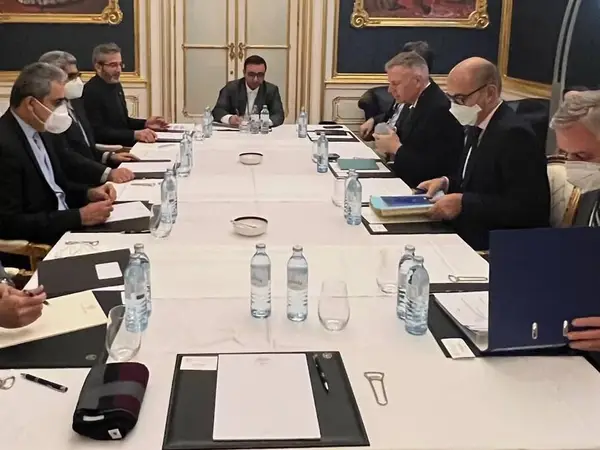France, Germany and the United Kingdom said Saturday they were consulting “international partners” on “how best to address Iran’s continued nuclear escalation.”
A statement from the ‘E3’ said Tehran had chosen not to take the “critical diplomatic opportunity” offered by a text circulated August 8 by the European Union in an effort to conclude 18-month talks to revive the 2015 Iran nuclear deal, the JCPOA (Joint Comprehensive Plan of Action).
A statement from United States foreign affairs spokesman Ned Price Friday said Secretary of State Antony Blinken had briefed the E3 foreign ministers on his Ukraine visit and that they had “discussed the challenges posed by Iran and our commitment to working together to address them.”
Since the EU draft was circulated August 8, there has been a series of diplomatic exchanges between Iran and the US that have failed to resolve remaining differences over JCPOA revival.
The E3 statement highlighted this week’s report from the IAEA director Rafael Mariano Grossi that he had made no progress with Iran in explaining the uranium traces since the IAEA managing board in June passed a resolution, drawn up by the US and the E3, censuring Tehran. Saturday’s E3 statement reiterated that Iran needed to “provide technically credible answers,” regardless of the JCPOA talks, because of its “legally binding obligations” under the Nuclear Non-Proliferation treaty.
Tehran has argued the IAEA probe is politically motivated, and results from allegations made by Israel in 2018 as Trump withdrew the US from the JCPOA. In December 2015, Iran argues, the IAEA had produced a final report on Tehran’s pre-2003 nuclear work.
But while the E3 and US statements referred to continuing consultation, neither suggested what steps might be taken at the next IAEA board. Russia and China have both said that pursuing the matter, even back in June, was unhelpful to the JCPOA talks, and both countries hold vetoes at the United Nations Security Council should the E3 and US seek to refer Iran there.
The pause in the JCPOA talks has heightened focus on the Biden administration’s approach. It has stoked debate in Israel as it approaches a November 1 election. Opposition leader Benjamin Netanyahu is highlighting Iran to undermine Prime Minister Yair Lapid after David Barnea, head of the extraterritorial force Mossad, gave August press briefings critical of Biden, with whom Lapid has sought to coordinate.
Ross: US must ‘make clear’ it will act
Opponents of the JCPOA in the US have also gained momentum. Dennis Ross, who has held senior positions in Republican and Democratic administrations and maintains a skeptical view of the JCPOA while acknowledging it curbed Iran’s nuclear program, this week published a piece in Foreign Policy arguing that even if the 2015 agreement were revived, “Iran after 2030 [when some JCPOA clauses expire] would be in a position to move quickly to a bomb unless Iranian leaders come to believe that the cost of doing so is too high.”
Given Iran had acquired “nuclear know-how” and had become “a threshold nuclear weapons state” since Trump left the JCPOA and Iran expanded its nuclear activities, Ross wrote, Washington needed to make clear to the Iranian leadership that “the United States will act at a certain point and take out their entire nuclear infrastructure.”
While the Biden administration, and the E3, have never ruled out military action, Ross’s argument was that Iran’s leaders “do not believe Washington will ever use force against them.” This, he wrote, the US can and should change.
